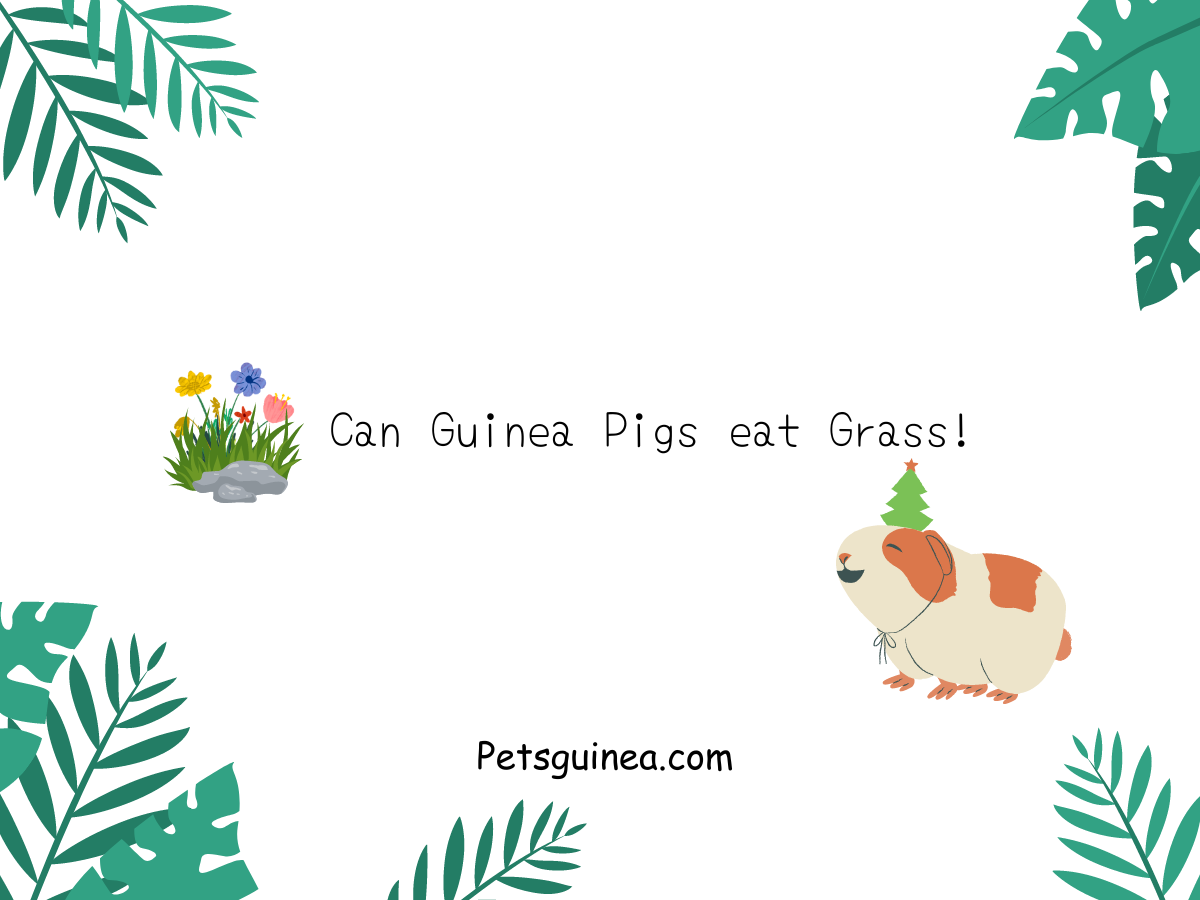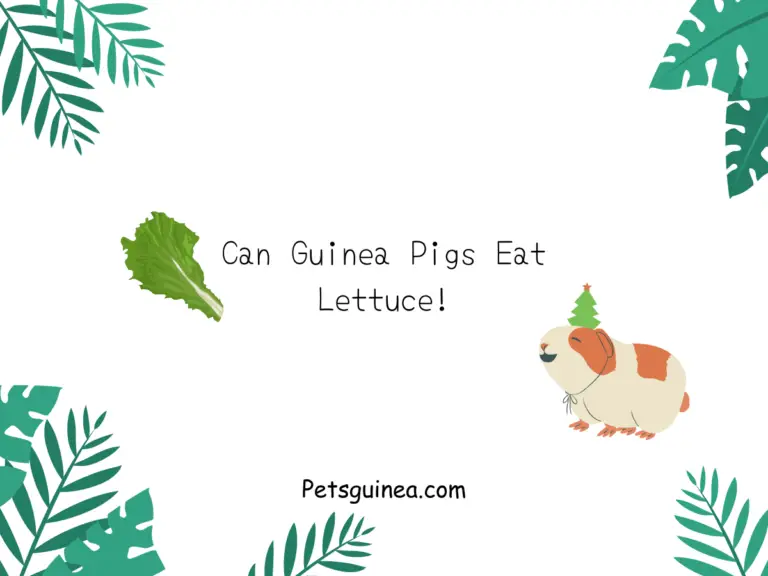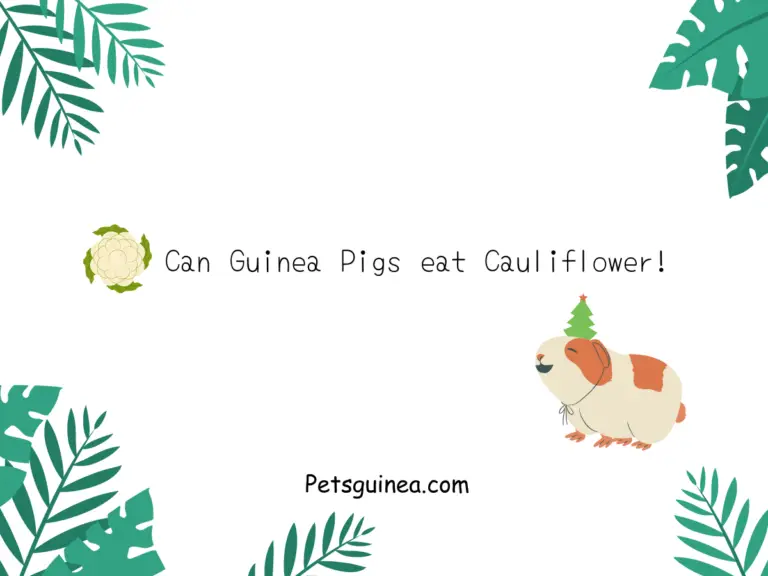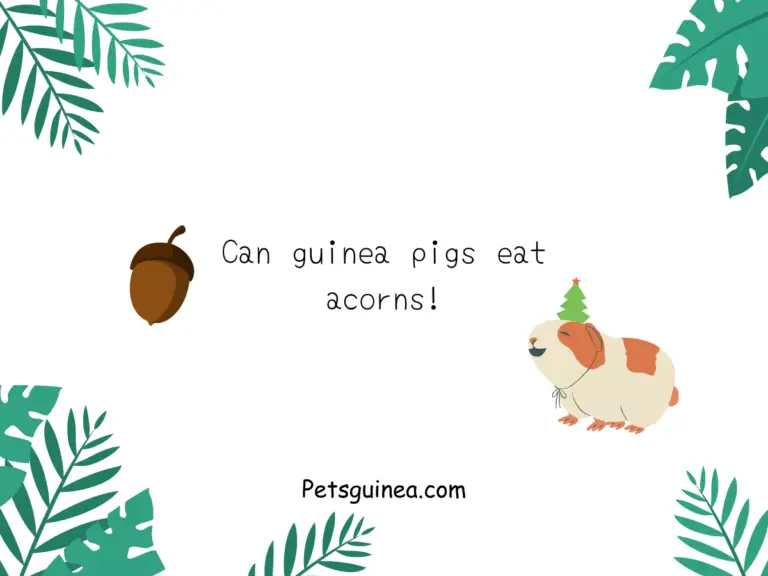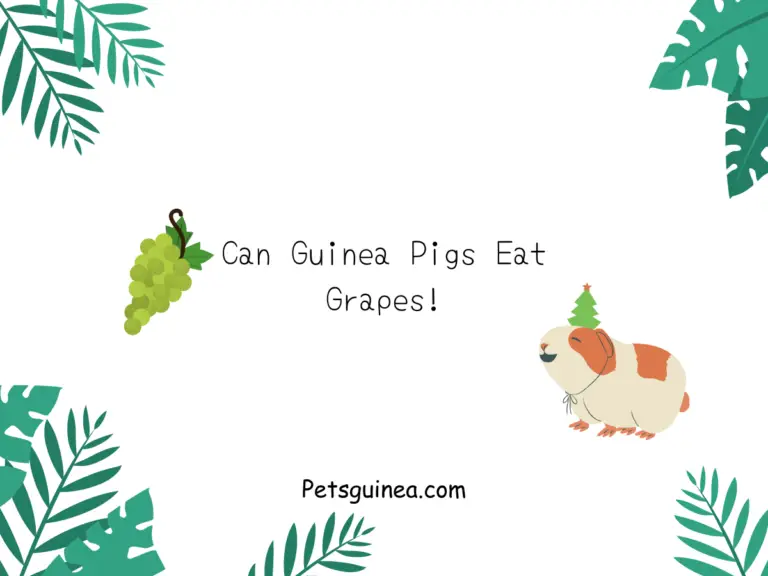Can Guinea Pigs Eat Grass? A Comprehensive Guide
Have you ever watched your guinea pig longingly eyeing the blades of grass peeking through the fence? Can these adorable little herbivores enjoy a bit of green in their diet? Like most things, the answer is more nuanced than a simple yes or no. Buckle up, cavy connoisseurs, because we’re diving deep into the world of grass and guinea pigs!
Quick Facts About Grass: A Green Ocean for Our Tiny Grazers
Grass is a diverse group of plants with over 10,000 known species! Talk about a botanical buffet!
It’s a low-calorie food packed with fiber, crucial for keeping your guinea pig’s digestive system humming smoothly.
Grass also contains essential vitamins and minerals, like vitamin C (which guinea pigs can’t produce themselves) and silicon, which helps maintain healthy teeth and bones.
Do Guinea Pigs Like Grass? It’s Written All Over Their Whiskers!
In the wild, guinea pigs, or cavies as they’re also called, are natural grazers. Their entire digestive system is designed to process a fiber-rich diet, and guess what’s brimming with fiber? You guessed it – grass! So, it’s safe to say that these little furballs have a built-in love for the green stuff.
Is Grass Bad for Our Guinea Pigs? Not Always, But Caution is Key
While grass can be a delightful addition to your guinea pig’s diet, there are a few things to keep in mind:
Pesticides and fertilizers:
Grass treated with chemicals can harm your guinea pig. If you need clarification on the treatment history of your lawn, it’s best to steer clear.
Sudden changes:
Introducing a new food too quickly can upset your guinea pig’s digestive system. Start with small amounts and gradually increase over time.
Wet grass:
Guinea pigs are prone to respiratory problems. Avoid letting them munch on grass after rain or watering.
Is Grass Good for Guinea Pigs? A Celebration of Crunchy Goodness
Here’s the green light you’ve been waiting for! Fresh grass can be a fantastic dietary supplement for your guinea pig, offering several benefits:
Dental health:
Grass, like hay, is high in fiber, which helps wear down your guinea pig’s ever-growing teeth, preventing dental problems.
Gut health:
The fiber in grass keeps your guinea pig’s digestive system moving smoothly, promoting good gut bacteria and preventing constipation.
Vitamin boost:
Fresh grass provides essential vitamins, especially vitamin C, which guinea pigs can’t produce independently.
Are Guinea Pigs Allowed Grass Clippings? Not the Best Choice
While technically not poisonous, grass clippings aren’t ideal for guinea pigs. Here’s why:
Loss of nutrients:
Grass clippings lose their nutritional value quickly after being cut.
Mold risk:
Damp clippings are prone to mold growth, which can harm your guinea pig.
Can Guinea Pigs Eat Grass Instead of Hay? Don’t Ditch the Hay!
While grass offers some fantastic benefits, hay should always be the cornerstone of your guinea pig’s diet. Here’s why:
Essential fiber:
Hay provides a higher and more consistent source of fiber than grass.
Indigestion risk:
Too much grass can lead to digestive issues like bloating.
Balanced diet:
Hay offers a wider range of nutrients than grass.
How Often Can Guinea Pigs Eat Grass? Moderation is Key
A good rule of thumb is to offer your guinea pig a small handful of fresh grass daily, especially during the growing season. Remember to introduce it gradually and monitor for any signs of discomfort.
How to Feed Guinea Pigs Grass? Let the Greener Pastures Begin!
Here are some tips for safely introducing grass to your guinea pig’s diet:
Source:
Pick fresh, untreated grass from a safe area, away from roads and possible contamination.
Wash it gently:
Rinse the grass with clean water to remove dirt or debris.
Dry it thoroughly:
Don’t feed your guinea pig wet grass. Let it air dry completely.
Start small:
Begin with a tiny amount and observe your guinea pig for any signs of digestive upset.
Can Guinea Pigs Eat Wheatgrass? A Greener Option (With Caution)
Wheatgrass, a young wheat plant, is another source of fiber and vitamins. However,
While wheatgrass can be a tempting treat for your guinea pig, there are a few things to consider before offering it:
Higher calcium content:
Wheatgrass has a higher calcium content than regular grass. Too much calcium can contribute to bladder stones in guinea pigs.
Richer taste:
Wheatgrass might be tastier than regular grass, leading to your guinea pig neglecting their hay, which is crucial for their diet.
Limited availability:
Finding fresh wheatgrass might be more challenging than regular grass.
So, can guinea pigs eat wheatgrass? In moderation and as an occasional treat, yes. However, hay should always be their primary source of fiber. Here’s how to approach wheatgrass safely:
Limited quantities:
Offer a small amount (think a teaspoon) only a few times a week.
Monitor for bladder issues:
Watch for signs like blood in the urine or straining to pee. If you notice any, discontinue wheatgrass and consult your vet.
Hay remains king:
Remember, hay is the foundation of a healthy guinea pig diet. Keep wheatgrass from becoming the main course.
Conclusion: A Balanced Approach to Grass and Your Guinea Pig’s Diet
Grass can be a delightful and enriching addition to your guinea pig’s diet, offering essential fiber, vitamins, and a taste of the wild. However, it’s crucial to remember moderation is key. Hay should always be the mainstay of their diet, providing the consistent fiber and nutrients they need to thrive. With careful planning and a bit of green exploration, you can ensure your furry friend enjoys the best of both worlds – the comfort of hay and the occasional crunch of fresh grass!
FAQs: Grass and Your Guinea Pig’s Greener Pastures
Yes, guinea pigs can enjoy fresh grass in moderation! It provides essential fibre for their digestive system, some important vitamins, and a fun way to mimic their natural grazing behaviour. However, remember to introduce it gradually and ensure the grass is untreated with chemicals.
They are not recommended. Grass clippings lose their nutritional value quickly and can be too moist, potentially leading to respiratory problems or mould growth. Stick with fresh, whole blades of grass.
Absolutely not! Hay should always be the foundation of your guinea pig’s diet. It offers a higher and more consistent source of fiber compared to grass while also providing a wider range of nutrients. Think of grass as a delightful supplement, not a substitute.
Cauliflower, in very small quantities (think a floret or two, chopped), can be a safe treat for guinea pigs. However, it’s high in calcium and can cause gas. Introduce it gradually, monitor for any digestive issues, and don’t make it a regular part of their diet. Broccoli florets are a better option as they’re lower in calcium.

